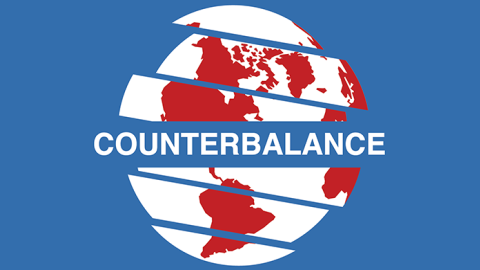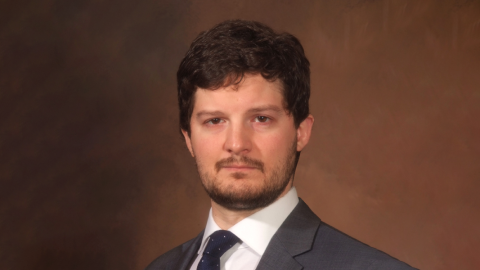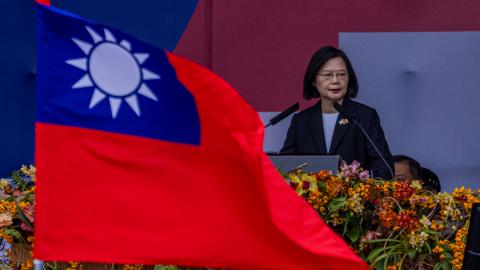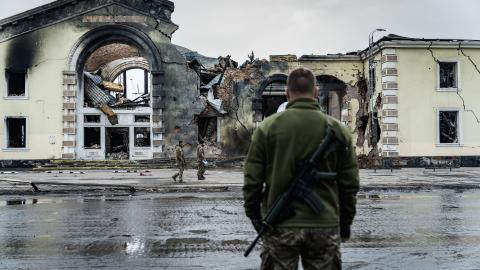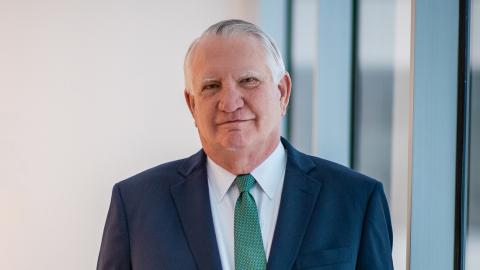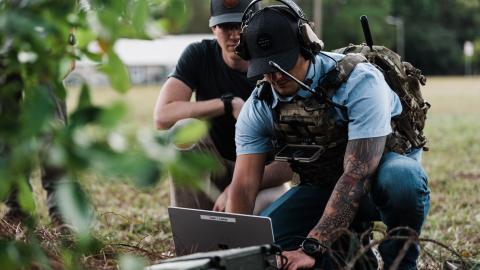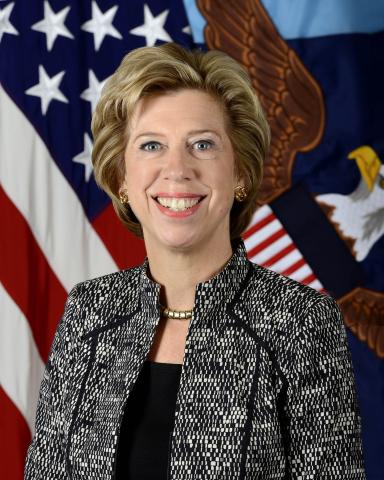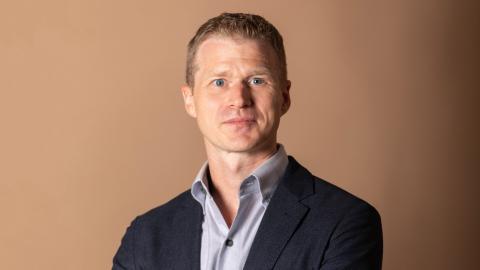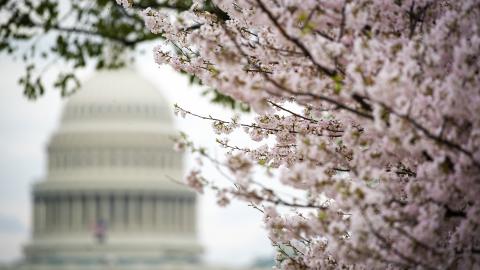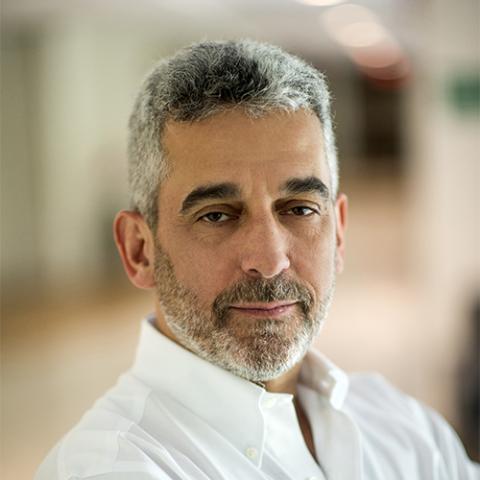A large demonstration is planned for tomorrow, Friday, in front of the U.S. embassy in Cairo but, as you can see on Al Jazeera's live streaming video, protesters are gathered today, too. The police have established their position at some distance from the crowd, as well as the embassy, and are fitfully tossing rocks and firing tear-gas canisters to keep that broad passage between themselves and the crowd clear. In effect, these are the only defenses the police have against a mob that might otherwise tear them to pieces, because they're not going to fire their weapons, not today to protect themselves and almost certainly not tomorrow either if they have to protect Americans.
An Egyptian president from the Muslim Brotherhood is not going to give the order to shoot at demonstrators in front of the American embassy who are supporting what has been ardently marketed as a Muslim cause--protests against a film insulting the prophet of Islam. Without Mohamed Morsi providing the police with cover, the police know they're vulnerable, not only to the mob but a court system that has prosecuted and jailed policemen for their actions during the uprising that brought down Hosni Mubarak. The protesters know all this, especially the history of the revolution and the various battles pitting the cops against the revolutionaries, because most of the demonstrators that were gathered today in front of the embassy are those same revolutionaries.
While the evening crowds, including women, are now milling leisurely around in front of the embassy, during the day there were few beards among the mob that would indicate an Islamist presence. Instead, the majority of the protesters were clean-shaven young men, from their teens to the twenties, the same cadre that gave the revolution much of its shock troops.
"The revolution ran on two levels," Amr Bargisi, senior partner at the Egyptian Union for Liberal Youth, emailed me today from Cairo. "There was the intellectual or ideological level, which was dominated by Islamists and leftists. This was the part of the revolution that was most visible. But there was another level as well, the street level, which was dominated by the Islamists and this same collection of young toughs, high school and technical school students who hang out around Tahrir Square. They like fights, they like to storm buildings, some, if not most, are addicted to Tramadol. It's a great anti-police drug. You don't feel pain. They can beat you to death and you won't feel a thing. They're calling it the Zombie drug. Tramadol was a big part of the revolution. The point is that for the ideological revolution to have succeeded you needed these toughs because you had to win on the street level. To take on the entire police force of a dictatorship like Mubarak's you needed to bring them down on the street through force. That's who these kids are. They took on the Mubarak regime alongside the Islamists, whose willingness to die for their cause cannot be underestimated."
Bargisi explains that the young street toughs are easy to co-opt for different causes, because they have no ideology. "During the revolution, the leftists called them heroes and martyrs on their TV shows and in their columns. They're basically lower class kids and the leftists defended them, arguing that middle class Egyptians hated everyone who looked different or acted differently."
Bargisi isn't sure yet what, if any, relationship the revolutionary toughs have with the Islamists. "It was organized by the jihadis, like Zawahiri's brother. But that's not who's dominating the crowd right now. This Salafi guy I know comes over to fix stuff in my house. He's a carpenter. He says, 'Why care about this movie anyway? Have these people watched every movie ever made? I am quite sure this happens often. What's new? America sucks, nothing new.'"
The danger is if events start to spin out of control. "One accidental death is enough to do it," says Bargisi. "Like someone suffocating from tear gas. Then there's escalation. More people go out to the streets, more violence, and the Brotherhood has to match the Salafis. People start making unrealistic demands--the U.S. has to apologize, the U.S. has to extradite the producer. Morsi cancels his visit to Washington. At that point, we really might be looking at a replay of the 1979 Iranian hostage crisis."
Bargisi says that most Egyptians just wish the revolutionaries would go away. "Ordinary people just want peace and quiet, to get back to their lives. Someday soon, all of Egypt is going to be hoping for a police crackdown. But right now you can storm any public building and expect a medal for it."
Morsi is unlikely to use this occasion to establish the state's monopoly on legitimate violence. "There is no consistent policy to put an end to this once and for all. If the outcome of the ideological revolution has already been resolved in favor of the Islamists, the Brotherhood in particular, the ground level has yet to be controlled."
That's coming eventually, says Bargisi, but not now, not with the Americans in the middle of it. In Arab politics, the default move is to take sides against the United States, with the most vocal and passionate taking the prize. It is the role then of American policymakers to draw clear redlines that must not be crossed--as the Cairo mob did yesterday by storming the embassy.
The question then is, what is the White House telling the president of Egypt? If the mob makes a run at the embassy tomorrow, Morsi had better provide his police force with the legitimacy it needs to protect American citizens and diplomats. If not, both Egypt and the United States may end up reaping the whirlwind that the revolution sowed.
